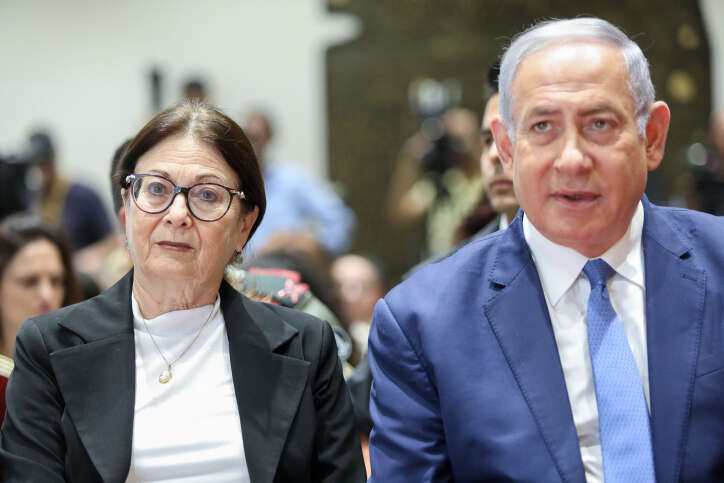The judges of the Supreme Court – President Ester Hayut, Vice President Uzi Fogelman and Judge Yitzhak Amit – rejected the request of the Movement for the Quality of Government to impose sanctions on Prime Minister Benjamin Netanyahu according to the court’s contempt order.
The request was submitted after Netanyahu gave a speech regarding the legal reform contrary to the terms of the conflict of interest settlement set for him by the legal adviser to the government Gali Beharev Miara. In his speech, Netanyahu made it clear that he intends to engage in reform, and noted that following the enactment of the fortification law, he intends to get into the thick of the issue. The counselor reprimanded Netanyahu, but in response to the request she claimed that this issue is not suitable for handling in the framework of a request under the court’s contempt order. This is despite the commitment that Netanyahu previously gave to the High Court to respect the order of affairs that the advisor had determined for him.
The panel, led by President Hayut, adopted the advisor’s position, and stated that there is no place to use the contempt of court order in this context, however, the judges clarified that Netanyahu has the duty to respect the advisor’s instructions regarding the settlement of the conflict of interest.
“We saw to point out that even in situations where the contempt of court order does not apply, ‘everyone must respect judgments’, and it is easy to expect this from the state and any governmental entity as a party… We also saw to reiterate that in this field of conflict of interest arrangements – as in other fields – farms The opinion of the Legal Adviser to the Government is binding, as long as the court does not rule otherwise,” said Hayut’s decision.
Hayut even added and quoted words in this vein from the ruling in the original petition regarding the Prime Minister’s conflict of interest, “In this area of the conflict of interest arrangements there are reasons that strengthen the conclusion that the consultant’s opinion is binding on the subject of the arrangement. This is because the formulation of these arrangements mainly concerns the application of legal tests established in the case law in relation to the rule prohibiting conflicts of interest and their application to the circumstances of the case. Therefore, it is only natural that the party whose party will have the “last word” in these matters will be a legal party. Indeed, the field of conflict of interest is at the core of the Attorney General’s duties as someone who works to protect the rule of law and maintain on the order of government, the proper administration, and the purity of morals. Therefore, leaving the final and binding decision in this area to the advisor – and not to the minister who is the subject of the settlement – is of clear and distinct importance… The conclusion that follows from the statement that the opinion formed by the Attorney General regarding conflicts of interest of ministers is binding, is At the end of the negotiation process between the consultant’s representatives and the minister, this opinion is the final document that establishes the limitations to which the minister is subject and must be considered a conflict of interest settlement for all intents and purposes.”


